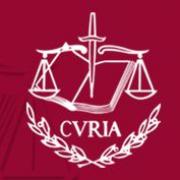
“OIV recommendations [are explicitly compared] to rules of EU law as regards the methods of analysis for determining the composition of products of the wine sector, the special requirements applicable, in terms of oenological practices, to imports of wine originating from third countries, and the purity and identification specifications of substances used in such practices.” (§61)
“the recommendations (…) which (…) relate to new oenological practices, methods of analysis for determining the composition of products of the wine sector, or purity and identification specifications of substances used in oenological practices, are capable of decisively influencing the content of the legislation adopted by the EU legislature in the area of the common organisation of the wine markets.” (§63)
“such recommendations, in particular by reason of their incorporation into EU law (…) have legal effects in that area for the purposes of Article 218(9) TFEU and that the European Union, while not a party to the OIV Agreement, is entitled to establish a position to be adopted on its behalf with regard to those recommendations, in view of their direct impact on the European Union’s acquis in that area.” (§64).
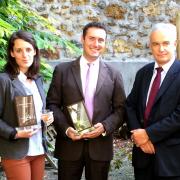
One of the winners for the year 2014 was Mr Olivier Serra, whose history of law thesis on "Legislators and the vitivinicultural market under the French Third Republic" won him the Grand Prix. The Academy also gave a Prix d'initiative award to the Wine Mosaic organisation for their project, which protects and promotes little-known vine varieties. Mr Jean-Marie Aurand, Director General of the OIV, who was present at this ceremony, congratulated the award winners and highlighted the Amorim Academy's actions in favour of scientific research as well as the Academy's role as an observer of the OIV.
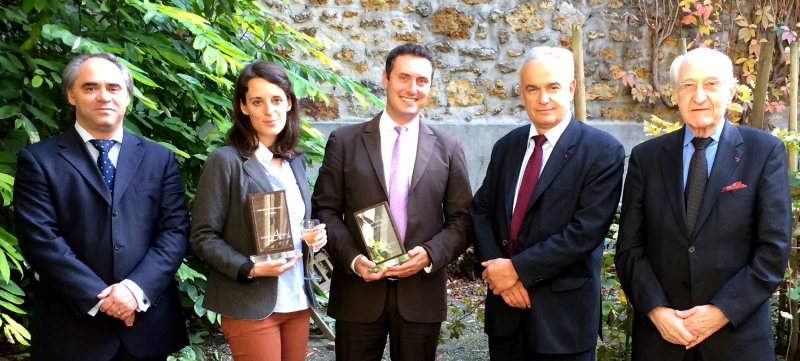
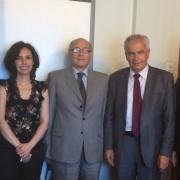
On this occasion, Jean-Marie Aurand met the National Director of the Agriculture and Livestock Department, Mr Angel Sartori, in the presence of the Head of the Sub-department of Vitiviniculture, Food Safety and Biotechnology, Ms Alejandra Aburto Prieto, the OIV delegate, Mr Joaquín Almarza Serrano, and the Head of the Department of Agriculture and Forestry Protection, Mr Rodrigo Astete Rocha.
During this meeting, the National Director of the Agriculture and Livestock Department recalled that Chile had been a member of the OIV for more than 60 years. He also stressed the importance that his country, as a major player in the global market, attaches to the activities of the OIV and confirmed its full support of the Organisation.
Jean-Marie Aurand expressed his desire for Chile to further strengthen its presence within the OIV by bringing together experts to participate in various work projects.
While he was over there, several meetings were also organised with companies in the Chilean vitivinicultural sector, which resulted in a number of discussions about the world wine market, its developments and prospects.
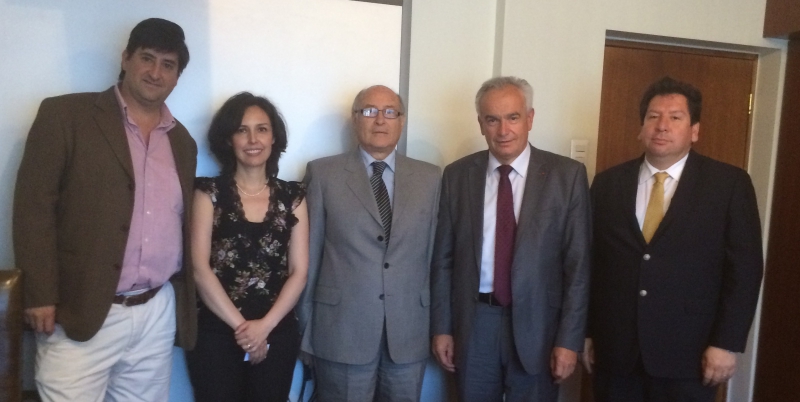

Born in Cerea (VR) in 1953 and based in Fumane, Roberto Ferrarini was the holder of numerous titles. He authored over 150 national and international works, publications and communications – scientific, technical and informative in nature. He was Director of Research and Director of the departments of Development and University Research, as well as the scientist responsible for various research projects financed by the Veneto region. As a professor on the viticultural and oenological sciences course at the University of Verona, Roberto Ferrarini was also a member of the Italian Academy of Vine and Wine and a member of the Italian OIV delegation on behalf of the Ministry of Agriculture, notably as part of the "Oenology" Commission and the "Technology" Expert Group.
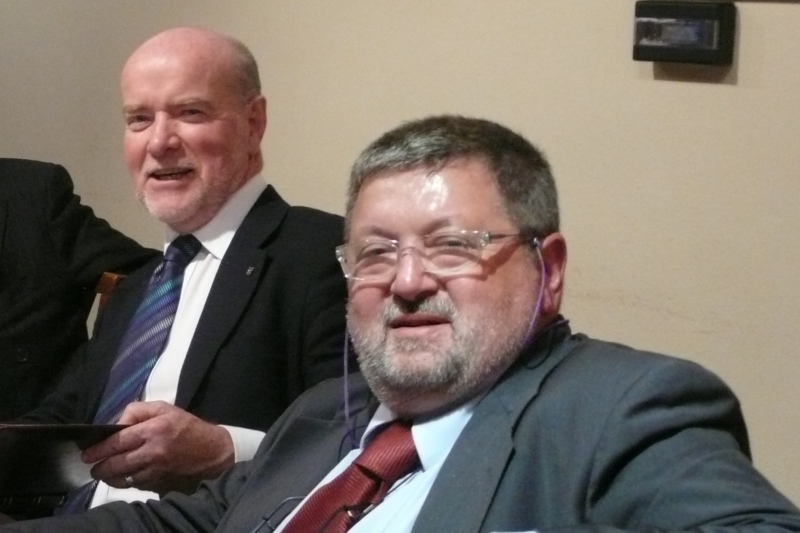
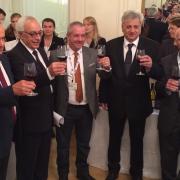
This presentation follows the OIV Director General's visit in September to present, to professionals in the sector, the technical and scientific activities of the OIV, as well as to strengthen cooperation of expertise. The Director General of the Israeli Ministry of Agriculture, Mr Ramy Cohen, was delighted that, for the second time at the OIV headquarters, Israeli viticulture had the opportunity to become better known as one of the components of Mediterranean wine culture.
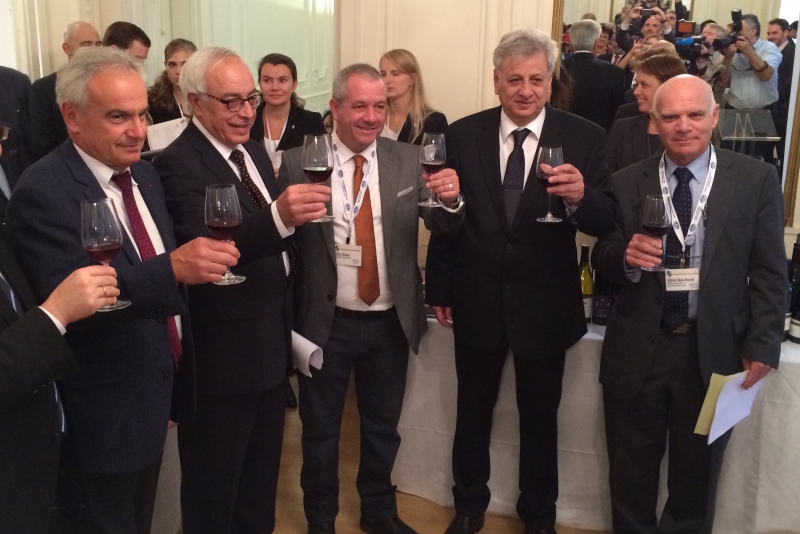
From left to right:
Jean-Marie Aurand, OIV Director General - Yossi Gal, Israeli Ambassador in France - Zahi Dotan, Director General of the Israel Wine Grapes Board - Ramy Cohen, Director General,
Ministry of Agriculture - Itzik Ben David, Deputy Director General for Foreign Trade, Ministry of Agriculture